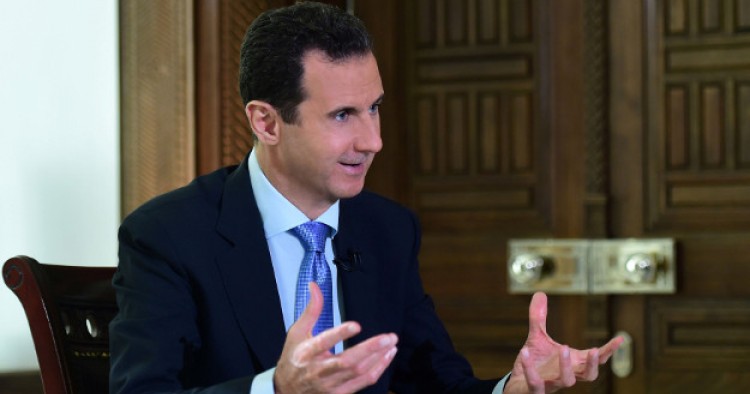In an interview with a state-run Iranian TV channel, Syrian President Bashar al-Assad said that the evolving dynamics in southern and northern Syria would not alter “strategic” relations between Damascus and Tehran and emphasized that his government would be open to permitting Iran to establish military bases on the Syrian soil if needed. “After the liberation of Ghouta, a plan to advance toward southern Syria was discussed. We had two options in front of us as in other regions in Syria: either we make peace or we resort to the use of force to liberate the region,” he told Al-Alam News Network, which broadcasts in several languages including Arabic in the Middle East. “Russia’s suggestion was to pave the way for peace with armed groups, something that has happened in a number of regions. The goal was to revert to pre-2011 situation. This means that the Syrian Army returns to the region, which is the place to confront the Zionist regime from, and to drive out terrorists from the area. And this was a suitable and good suggestion for us,” he added.
Comment: It was clear from Assad’s interview remarks that he has no intention to pressure Iranian-led forces to leave the war-torn country anytime soon, despite mounting pressure from Israel, the U.S. and some regional countries. He stressed that the Iranian military, Hezbollah and other Shiite militia forces will remain in Syria until they “believe that terrorism has been eliminated”.
But while Assad did not clearly answer the Iranian journalist’s question about the presence of Iranian military personnel in southern Syria, he appeared to favor the Russian proposal to deploy only Syrian Army forces to southern regions in order not to provoke Israel and the United States. For example, when asked whether Israel prefers the Syrian Army to replace “resistance forces” in southern Syria, Assad emphasized that both options were bad for Israel. The Syrian president also cast doubt about the U.S. intention to leave al-Tanf base in southeastern Syria in the near future.
Fighting has become less intensive in southern Syrian since Russia, the United States and Jordan last year brokered a “de-escalation” agreement for southwest regions last year. But the presence of Iranian-led forces in the south has prompted repeated military actions by Israel, which is worried that Iran and its regional allies are attempting to open a new war front against Israel from the region.
The Middle East Institute (MEI) is an independent, non-partisan, non-for-profit, educational organization. It does not engage in advocacy and its scholars’ opinions are their own. MEI welcomes financial donations, but retains sole editorial control over its work and its publications reflect only the authors’ views. For a listing of MEI donors, please click here.













